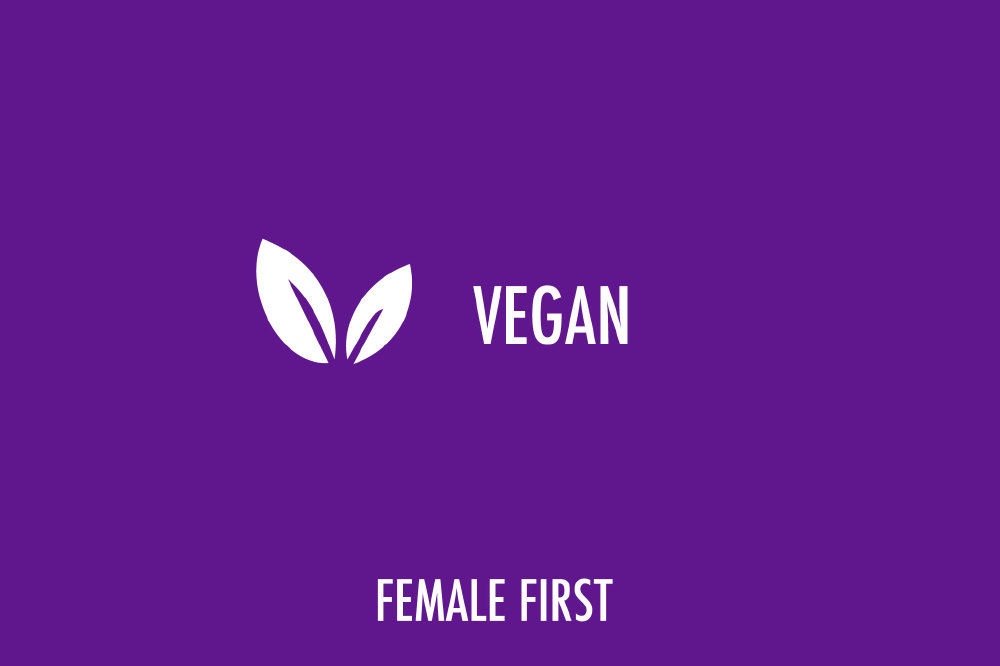There might be some confusing messages out there on how to lose weight on a vegan diet, so we’ve decided to cut to the chase and give you the top 10 ways on how to lose weight on a vegan diet from Nutritional Therapist, DeeBrereton-Patel at Optimised Personal Wellness:

Vegan on Female First
Adequate protein intake is a must for losing weight and staying healthy. We’re not talking about crazy high intakes of protein, but finding the right balance is key. For most people this is 1g of protein per kg body weight, so if you weigh 60kg, then you should aim for 60g of protein daily.
Where can I find this fat burning, energy sustaining, mood enhancing protein for a vegan diet we hear you ask? The best sources include beans, lentils, and quinoa, as well as naturally fermented soy products such as tempeh, nuts, seeds and high quality pure protein powders such as sprouted brown rice powder, hemp powder, sunflower seed powder and pea protein powder.
It’s easy to have a high carbohydrate diet when you’re Vegan, which isn’t a bad thing if you’re burning these carbs off through exercise or endurance sport. However, weight issues can arise where carbohydrate consumption conflicts with a lack of exercise expenditure. When looking to lose weight on a vegan diet aim to cut back your carbohydrate consumption to 15% of your daily intake to help you get lean in no time. We would also recommend reducing flour based products too, yes even quinoa flour, buckwheat flour, spelt flour and rice flour, as well as any ground grains as these foods can easily spike blood sugar levels and make it tougher to lose weight.
Creating a calorie deficit (burning more calories than you consume) is a critical factor in losing weight. While crash dieting can compromise your metabolism, eating more calories than you burn will stop fat loss in its tracks. A calorie deficit of 500 calories per day is a great place to be.
Top Tip: Remember that if you’re burning lots of calories through exercise, you might be under-eating which is the same as crash dieting
Don’t be afraid of good fats that can help burn the unwanted fat and and help to lower inflammation in the body. Fall in love with olives, olive oil, coconut oil, avocados, nuts and seeds.
Top Tip: When looking to lose weight your daily fat intake can be as high as 50-60% of your total calories.
Supporting thyroid hormone production can help with weight loss, particularly if thyroid function is not optimal. Include selenium rich foods such as brazil nuts - particularly where grown in South America where soil selenium levels are good- iodine rich foods such as seaweed, nori, kelp, kombu and wakame, and zinc rich pumpkin seeds.
Including essential anti-inflammatory omega 3 fatty acids, are essential for fat loss. Whilst foods such as flax seeds, hemp seeds and chia seeds contain some omega 3 fats, levels are significantly lower than what is found in oily fish such as salmon. Our best advice if you’re looking for fat loss, is to supplement with a high quality vegan algae derived omega 3 supplement.
Aim for 8 portions of mainly fibrous vegetables each day such as artichokes or brocoli, and 2 portions of fruit. A rainbow of colours on your plate will help ensure you meet your requirement for essential vitamins, minerals and phytonutrients that can support weight loss as well as a happy digestive system.
Maintaining your energy levels is key. Exercise is fundamental to weight loss, but a lack of energy can be a real stumbling block. If you do experience low energy levels of a regular basis it’s always best to check for nutrient deficiencies that can affect energy such as lack of vitamin D, B12 and iron. Contrary to popular belief there are no good, reliable, vegan sources for B12. Even brewer’s and nutritional yeasts only contain B12 if they have been fortified with it. Further information around B12 In a vegan diet can be found on the Vegan Society website.
Vegan diets and weight loss tend to work better when paired with endurance exercise. This is because endurance exercises such as tri-athlons tend to be more carbohydrate dependant compared to protein dependant exercise such as bodybuilding and strength training. Therefore, as Vegan diets tend to be higher in carbohydrates, endurance exercise is a great way to burn burn off these calories.
Tagged in Vegan

